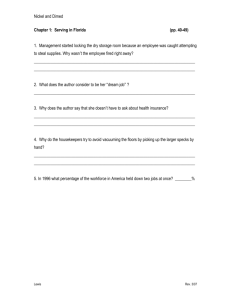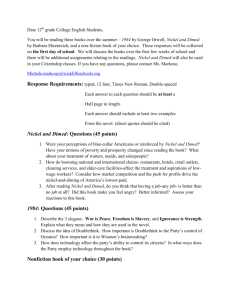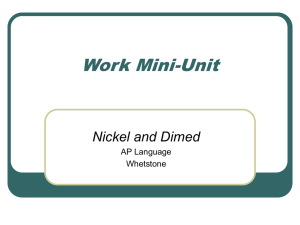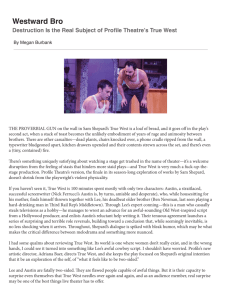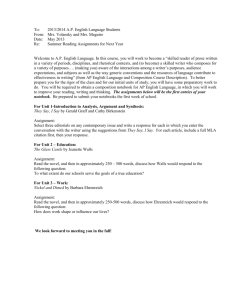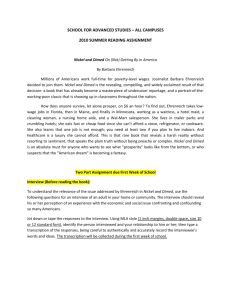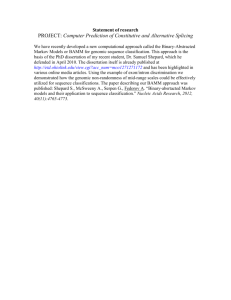AP Language and Composition Summer Reading Assessments
advertisement
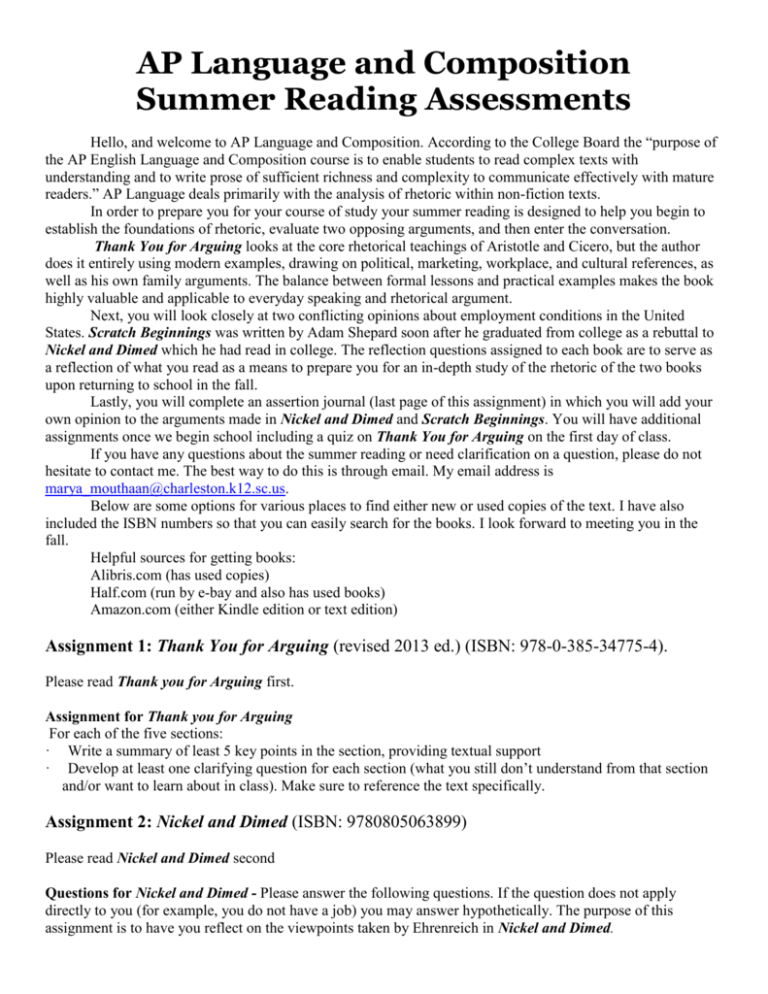
AP Language and Composition Summer Reading Assessments Hello, and welcome to AP Language and Composition. According to the College Board the “purpose of the AP English Language and Composition course is to enable students to read complex texts with understanding and to write prose of sufficient richness and complexity to communicate effectively with mature readers.” AP Language deals primarily with the analysis of rhetoric within non-fiction texts. In order to prepare you for your course of study your summer reading is designed to help you begin to establish the foundations of rhetoric, evaluate two opposing arguments, and then enter the conversation. Thank You for Arguing looks at the core rhetorical teachings of Aristotle and Cicero, but the author does it entirely using modern examples, drawing on political, marketing, workplace, and cultural references, as well as his own family arguments. The balance between formal lessons and practical examples makes the book highly valuable and applicable to everyday speaking and rhetorical argument. Next, you will look closely at two conflicting opinions about employment conditions in the United States. Scratch Beginnings was written by Adam Shepard soon after he graduated from college as a rebuttal to Nickel and Dimed which he had read in college. The reflection questions assigned to each book are to serve as a reflection of what you read as a means to prepare you for an in-depth study of the rhetoric of the two books upon returning to school in the fall. Lastly, you will complete an assertion journal (last page of this assignment) in which you will add your own opinion to the arguments made in Nickel and Dimed and Scratch Beginnings. You will have additional assignments once we begin school including a quiz on Thank You for Arguing on the first day of class. If you have any questions about the summer reading or need clarification on a question, please do not hesitate to contact me. The best way to do this is through email. My email address is marya_mouthaan@charleston.k12.sc.us. Below are some options for various places to find either new or used copies of the text. I have also included the ISBN numbers so that you can easily search for the books. I look forward to meeting you in the fall. Helpful sources for getting books: Alibris.com (has used copies) Half.com (run by e-bay and also has used books) Amazon.com (either Kindle edition or text edition) Assignment 1: Thank You for Arguing (revised 2013 ed.) (ISBN: 978-0-385-34775-4). Please read Thank you for Arguing first. Assignment for Thank you for Arguing For each of the five sections: · Write a summary of least 5 key points in the section, providing textual support · Develop at least one clarifying question for each section (what you still don’t understand from that section and/or want to learn about in class). Make sure to reference the text specifically. Assignment 2: Nickel and Dimed (ISBN: 9780805063899) Please read Nickel and Dimed second Questions for Nickel and Dimed - Please answer the following questions. If the question does not apply directly to you (for example, you do not have a job) you may answer hypothetically. The purpose of this assignment is to have you reflect on the viewpoints taken by Ehrenreich in Nickel and Dimed. 1. Were your perceptions of blue-collar Americans transformed or reinforced by Nickel and Dimed? Have your notions of poverty and prosperity changed since reading the book? What about your own treatment of waiters, maids, and sales-people? 2. How do booming national and international chains -- restaurants, hotels, retail outlets, cleaning services, and elder-care facilities -- affect the treatment and aspirations of low-wage workers? 3. Housing costs pose the greatest obstacle for low-wage workers. Why does our society seem to resist rectifying this situation? Do you believe that there are realistic solutions to the lack of affordable housing? 4. While working for The Maids, Ehrenreich hears Ted claim that he’s “not a bad guy . . . and cares a lot about his girls.” How do the assumptions of supervisors such as Ted affect their employees? How does Ted compare to Ehrenreich’s other bosses? To yours? 5. Ehrenreich is white and middle class. She asserts that her experience would have been radically different had she been a person of color or a single parent. Do you think discrimination shaped Ehrenreich’s story? In what ways? 6. Ehrenreich found that she could not survive on $7.00 per hour -- not if she wanted to live indoors. Consider how her experiment would have played out in your community: limiting yourself to $7.00 per hour earnings, create a hypothetical monthly budget for your part of the country. (this question may require outside research) 7. Ehrenreich experienced remarkable goodwill, generosity, and solidarity among her colleagues. Does this surprise you? How do you think your own colleagues measure up? (you may refer to your classmates if you do not have a job) 8. Why do you think low-wage workers are reluctant to form labor organizations as Ehrenreich discovered at Wal-Mart? How do you think employees should lobby to improve working conditions? 9. Many campus and advocacy groups are currently involved in struggles for a “living wage.” How do you think a living wage should be calculated? 10. Were you surprised by the casual reactions of Ehrenreich’s coworkers when she revealed herself as an undercover writer? Were you surprised that she wasn’t suspected of being “different” or out-of-place despite her graduate-level education and usually comfortable lifestyle? 11. How does managers’ scrutiny – “time theft” crackdowns and drug testing -- affect workers’ morale? How can American companies make the workplace environment safe and efficient without treating employees like suspected criminals? 12. Ehrenreich concluded that had her working life been spent in a Wal-Mart -- like environment, she would have emerged a different person -- meaner, pettier, “Barb” instead of “Barbara.” How would your personality change if you were placed in working conditions very different from the ones you are in now? 13. The workers in Nickel and Dimed receive almost no benefits -- no overtime pay, no retirement funds, and no health insurance. Is this fair? Do you think an increase in salary would redress the lack of benefits, or is this a completely separate problem? 14. Many of Ehrenreich’s colleagues relied heavily on family -- for housing and help with child-care, by sharing appliances and dividing up the cooking, shopping, and cleaning. Do you think Americans make excessive demands on the family unit rather than calling for the government to help those in need? 15. After reading Nickel and Dimed, do you think that having a job -- any job -- is better than no job at all? Did this book make you feel angry? Better informed? Relieved that someone has finally described your experience? Galvanized to do something? Assignment 3: Scratch Beginnings (ISBN: 0061714275) Please read Scratch Beginnings last Questions for Scratch Beginnings - Please answer the following questions. The purpose of this assignment is to have you reflect on the viewpoints taken by Shepard in Scratch Beginnings. 1. As part of his premise, Shepard offers the idea that he will not be able to use his educational background. In your opinion, how does his educational background come into play (if at all) throughout the course of the book? Is his college degree useful while he is performing blue-collar jobs and enforcing spending and savings tactics to get him out of his present circumstance? 2. From the beginning, Shepard establishes a contrast to Nickel and Dimed by Barbara Ehrenreich. Analyze the difference in attitudes of each of these authors as depicted in their respective narrative accounts of the vitality of the American Dream. 3. Shepard asserts early on that he is not an author or a journalist. Do you think that this declaration adds to his story or takes away from it? Does being a “regular guy” add to the credibility of his story? Or not? 4. While perhaps a victim of his own naiveté, Shepard doesn’t appear nervous as he walks down Rivers Avenue late on his first night in Charleston. Discuss what your reaction might be to being dropped in an unknown city, by yourself, where you don’t know anybody. 5. Shepard spends 70 days in Charleston’s homeless shelter where he meets a variety of people including both his “fair share of laggards and old, bearded men with whiskey on their breath” as well as guys that he didn’t think “even existed in those shelters.” Discuss our perceptions of the homeless and our perceptions of those that live in poverty. How do we justify those perceptions? 6. Perhaps the greatest shock for Shepard is the trouble that he had finding a job. He could have taken the job at the car wash or the restaurant, but he decided to hold out for something better, eventually finding work as a mover at Fast Company. Was his struggle finding a job unique? Is it enough for us to fill out applications around town or is it necessary to develop extraordinary strategies as Shepard did with his speech to Curtis, where he offered his services for free for a day? 7. Peppered throughout Scratch Beginnings are stories of the people that Shepard met along the way, stories of guys that were up to no good from the start and stories of guys that had simply been dealt a rough hand of cards in their lives. Discuss how their reactions to facing adversity shape who they become and how those reactions may or may not set the course for their future. What is society’s responsibility to guys like the one that Shepard met in the shelter who had been run over by a drunk driver? How does accountability for one’s actions and reactions figure into such scenarios? Have you ever had a time when you faced adversity, forced to make a decision on whether to stay strong or give up? 8. Near the end of Shepard’s time in the shelter, Rico and “Easy E” head to Florida for a six-month drug rehab program in affiliation with one of the local churches. What is your opinion on the fact that the two of them decided it was time for them to shape up, whereas other guys simply accepted their fate as the “filth on the bottom floor of life’s social structure”? Why do some eventually get “it,” while others don’t? 9. Moving furniture is a demanding occupation. It can be argued that Shepard accepted a job in the most difficult blue-collar profession he could have possibly chosen. How does this play into his story? Did he have an advantage because of his work ethic or is that the whole point – that we can choose to work hard and remain disciplined, and eventually we will emerge triumphant from a lower class lifestyle? 10. In order to accomplish his goals, Shepard develops thrifty spending habits and aggressive saving techniques. “Every $5 and $10 I could save might not matter so much for that one day, but it would be so valuable in the long run,” he says. Is it really that easy? Isn’t it difficult to quit smoking, shopping for unnecessary items, or supplying oneself with the entertainment to which he or she has become so accustomed? Discuss the sacrifices that Shepard made in realizing a successful journey. 11. Shepard is torn about his feelings for the owner of Fast Company: he wants him to run a successful operation, but he is not impressed with his hands-off leadership style. Do you see that as a serious issue in today’s American economy, owners and managers that expect their businesses to run efficiently while they observe from afar? Is this a fair way for things to operate? After all, owners and managers have worked hard and earned an education to obtain their status in life. Who suffers as a result of these faulty management techniques? 12. Throughout his narrative, Shepard writes about his being an outcast. He initially has trouble fitting in at the shelter, his goofiness tends to work against him at Fast Company (his work attire, in particular) and on the dance floor, and the obvious cultural differences between he and BG lead to a physical altercation in chapter fifteen. Does being a supposed outcast work for him or against him throughout his story? See if you can argue both sides. 13. Along those same lines, Shepard discusses the need for more “neighborhood heroes, more small timers stepping up – against the crowd – to show what it takes to embrace change.” While the course is set for Shepard to emerge as a working class hero in his book, Scratch Beginnings takes a different course, seeing Derrick Hale emerge as the champion. He works hard, is smart with his money, and he buys a house, despite a history of having come from economically impoverished Kingstree, SC and having served 24 months in prison. Does Derrick’s story give you hope that the American Dream is still alive or do you see his as just another, isolated situation? 14. Although he accomplished much more than he had set out to accomplish – and in a quicker amount of time – Shepard offers the idea that things might have been different if he had started in another city or town. Do you think his results would have been the same if he would have started in your community? Would his success have been more profound or would he have struggled to even find a job? 15. In comparing his outcome to what it might have been if he would have attempted his project elsewhere, Shepard remarks “that we live in the greatest country in the world.” Discuss how his project might have been different in another country – confronting substandard conditions as well language barriers and cultural differences – and then apply those thoughts to the recent wave of immigration in America. 16. In the epilogue, Shepard comments that “a hike in minimum wage is fun to talk about, but, in the end, economically speaking, it isn't a worthy option.” Discuss why he says this. Do you agree or disagree? 17. Also in the epilogue, Shepard offers seven solutions, institutional changes that can begin to alter the cycle of poverty. He notes that “these are not aggressive changes that will require massive funding.” Do you agree that these seven solutions are feasible options? Offer a solution of your own for discussion. 18. After completing Scratch Beginnings, take a step back to reflect on Shepard’s study. He began with next to nothing, and, in the end, was prepared to confront the limitless opportunity that awaited him. Does his project give you even more hope for the vitality of the American Dream? Do you recognize, more so now than before, that some people are go-getters while others choose to squander opportunity that is placed directly in front of them? Does his story – along with the conclusions that he was able to draw – make you compelled to want to do something for someone less fortunate than yourself, to give a couple hours per week to someone who did not have the same opportunities that you may have had growing up? Assertion Journal In Nickel and Dimed Barbara Ehrenrich makes the argument that, in essence, the American Dream is dead. Use the article “Is the American Dream Dead?” from US News and World Report (http://tinyurl.com/9tssmqn) as your initial assertion (paragraph 1) then you may use Scratch Beginnings, Nickel and Dimed, or other outside sources for paragraphs 2 and 3. The goal of this assignment is to have you 1. Identify an initial claim (from the US News and World Report article) 2. Identify objections to the initial claim and 3. Agree or Disagree with the initial claim and use support. Paragraph 1: Analyze the article and provide a clear explanation of the author’s assertion. Paragraph 2: Identify any possible objections to the author’s assertion try to refer to information gleaned from outside sources. This could be a textbook, newspaper article, etc. Be sure to CITE the source. Paragraph 3: Explain why you agree or disagree with the assertion being made. Refer to information from outside sources in order to strengthen your argument. Be sure to CITE the source. Requirements: Follow MLA format 12 point Times New Roman font double-spaced. Essay must be at least 350 words, but no more than 800. Please include word count at bottom of essay. __ Typed in MLA format with word count at the bottom (5 pts.) __ Paragraph 1: provides a CLEAR explanation of author’s assertion (20 pts.) __ Paragraph 1: identifies and explains any logical fallacies (5 pts.) __ Paragraph 2: identifies 1 possible objection to author’s assertion (10 pts.) __ Paragraph 2: uses 1 SPECIFIC RELEVANT CITED (from an outside source ex: article etc.) examples to support objection (20 pts.) __ Paragraph 3: explains why student agrees or disagrees with assertion (10 pts.) __ Paragraph 3: uses SPECIFIC RELEVANT CITED (from an outside source ex: article etc.) details to support and provide depth (20 pts.) __ Diction is sophisticated while clearly establishing writer’s tone (10 pts.) ___ Virtually no spelling, punctuation, or minor grammatical errors that detract from paper (each error is minus 1/2 point) ____ Total
